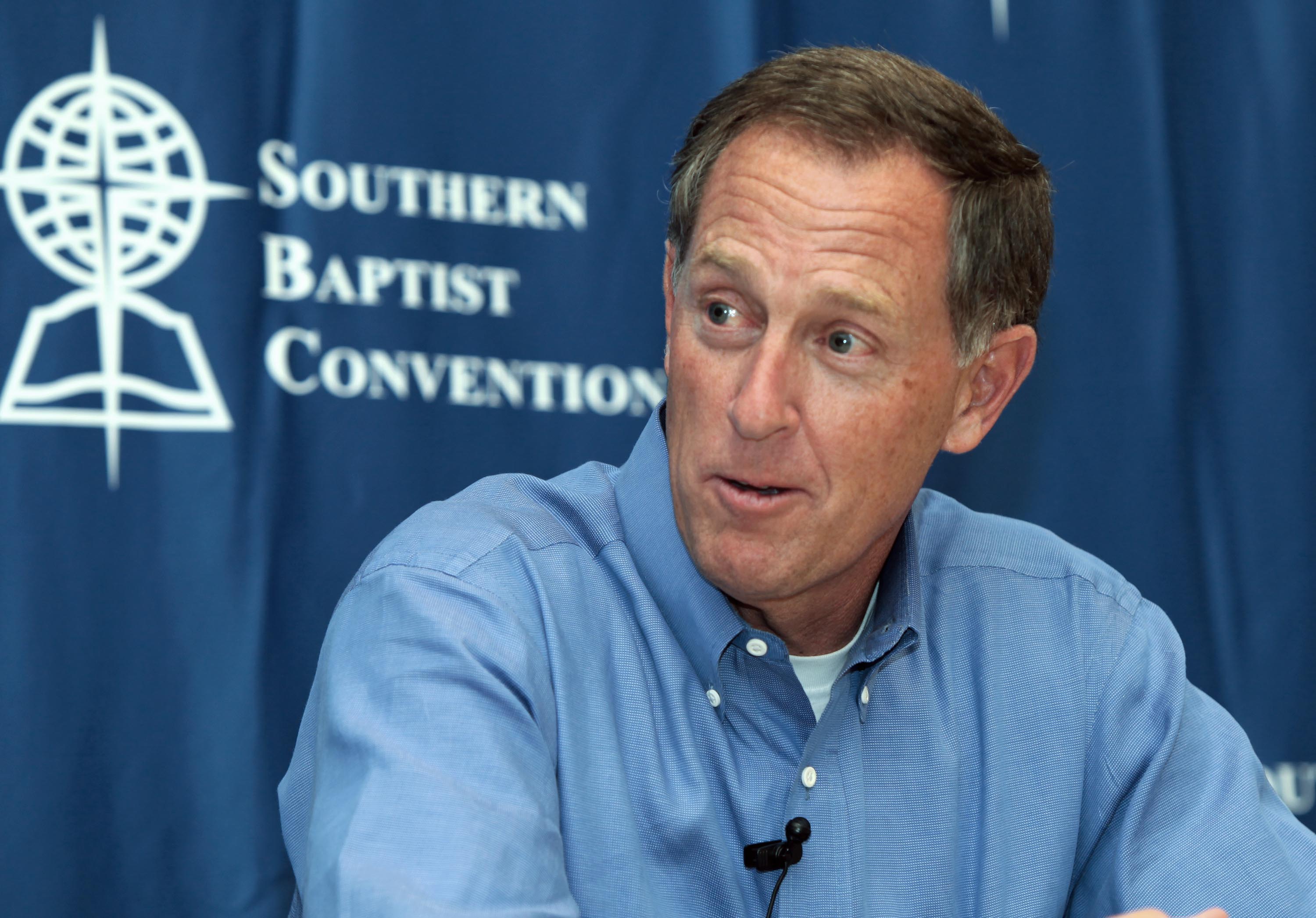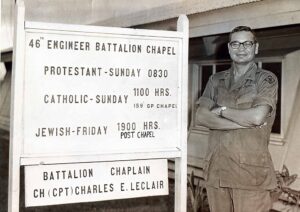
DULUTH, Ga. (BP) — Bryant Wright has traveled more than 100,000 miles to 16 states and to 10 countries on three continents since his election as president of the Southern Baptist Convention in June 2010.
Wright, pastor of Johnson Ferry Baptist Church in Marietta, Ga., had nearly 100 speaking engagements during his two-year presidency. Wright’s successor will be elected during the June 19-20 SBC annual meeting in New Orleans.
Wright was interviewed about his experiences as SBC president by Gerald Harris, editor of The Christian Index, newsjournal of the Georgia Baptist Convention. The article which follows was published by The Index in mid-May.
Index: You have talked much during your presidency about Southern Baptists returning to their first love. How do you think it would look if we were to achieve that goal?
Wright: Obviously, it would be a hard thing to measure, but basically it comes back to every Christian. I think it will mean that the church is going to look different from the world. Our big problem now is that the church looks so much like the world in terms of materialism, heathenism, obsession with “workaholism” and busyness. We just have so little distinctiveness in our spirit, our character and our priorities. We need to be more Christ-like in our character and spirit so we will be attractive to those who are lost.
Index: You have also talked a lot about the idolatry of materialism. What would you say about the problem of materialism and the challenge of Christian stewardship?
Wright: Jesus said that we must choose between money and God. If the average Southern Baptist looked at their checkbook, many would be reminded that they love their money more than God. Our checkbook reveals where our heart is. Jesus made that very clear (Matthew 6:21, 24).
Index: You had said that changing the name of the convention would position us to maximize our effectiveness in reaching North America for Christ. Why did you think it would make us more effective?
Wright: I felt like it would help us outside the South and Southwest not to have such a regional name. It’s a barrier. For example, how would we feel if someone from Boston came to the South and said they were going to start a church for the Yankee Baptist Convention? It probably wouldn’t be a huge draw to southerners in Birmingham. It is just a barrier to reaching people for Christ.
As we got into the study, it quickly became evident at how incredibly difficult it would be to legally change the name. With the autonomy of the local church, the autonomy of the state conventions and the authority of the entities guided by their boards, we could vote overwhelmingly to change the legal name, but we couldn’t force that upon anyone because of the autonomy issue.
Twenty state conventions may vote to approve the change and 20 state conventions might not. This would create a chaotic, divisive situation. So I have had to change my viewpoint on the matter.
Index: Did the racial connotation of “Southern” in our name motivate you to want to change the name? After all, the Northern and Southern Baptist Conventions came about as a result of the slavery issue.
Wright: I did not realize how much the word “Southern” and its association with the Confederacy presented an obstacle to African Americans in our convention. I just had not realized how significant a hurdle that was for them.
We had two African-American pastors on our committee and they were very helpful to us. They have been very courageous to be Southern Baptist pastors. They have not done the popular thing in regard to their peers.
Index: There appears to be a changing of the guard in SBC life and the older leaders of the Conservative Resurgence seem to be taking a back seat in the discussions. In fact, your election may have signaled that changing of the guard because many young pastors were supportive of your presidency. With the way the young leaders are emerging, what do you see as the future of the SBC?
Wright: Well, I am pleased, because the Great Commission is front and center in the SBC today. To me this is a direct result of the Conservative Resurgence. I wasn’t that involved in the denomination in those days, but I am excited about the present health of our seminaries and the doctrinal and missional focus they have today.
The Conservative Resurgence had to happen first, but now another generation has come along with a passion to take the Gospel to the ends of the earth.
Index: What have been your greatest challenges as the president of the convention?
Wright: First, my biggest hesitancy about doing this is that I knew it was a job with a lot of responsibility and very little authority. That is a bad combination for leadership. The president appoints the Committee on Committees, Resolutions Committee and a few other committees, but his authority is really very limited.
Because it is hard to communicate with our people due to the autonomy of the local church and state conventions, etc., I set up the monthly “Pray for SBC” video because I thought in this modern culture it would be a way to directly share my heart with Southern Baptists on a regular basis. But I have been disappointed with the number of viewers.
Index: What have been your greatest joys and accomplishments as president?
Wright: It has been a joy to see the Holy Spirit leading Tom Elliff [International Mission Board president] and me in the same way at the same time without each other knowing — that is, challenging churches to embrace unreached and unengaged people groups. When I called Tom to share my leading to challenge the churches of the convention in Phoenix [at the 2011 SBC annual meeting] to embrace all 3,800 unengaged and unreached people groups, he told me he had been meeting with IMB leadership about the same plan.
When the Holy Spirit is working two places at once with the same leading, that is really exciting. We now have over 1,100 churches engaged in reaching unreached people groups. This is truly a movement of the Holy Spirit. We are going to build on that at this year’s convention.
Index: How do you envision the future growth of the denomination?
Wright: I won’t be surprised if we show some signs of decline in membership, baptisms and attendance in the next 10-15 years because about two-thirds of our churches are less than 100 people and overwhelming elderly in rural and small town areas. In the 20th century, there was a radical sociological population shift in America from rural to urban. But when you see all those seminary students who are passionate about planting churches in largely unreached metropolitan areas, I think eventually we will see a reversal of that downward trend.
Index: How do you feel about the North American Mission Board’s emphasis on church planting?
Wright: There is a paradigm shift at IMB and NAMB. NAMB is going to assist the local church in planting churches. IMB is calling on the local church to embrace or adopt these unreached people groups. The focus is on the local church being in the lead. That’s a huge paradigm shift that’s happening.
Index: That paradigm shift bypasses associations and state conventions. Is that something that should concern people?
Wright: I do not think so. Churches can partner together within associations to start churches. Churches can work together within their state conventions to start churches. But I still think the local church should lead the way.
State convention leadership has been understandably concerned about the fact that I feel like a larger percentage of Cooperative Program dollars should go out of the states to missions in largely unreached areas. This is especially true in the Deep South states where Southern Baptist and so many other evangelical churches already provide a witness.
I certainly understand from their perspective, but I am trying to see the big picture. In the long run I think it will help the CP receive more dollars when a high percentage goes to domestic and international missions in largely unreached areas versus staying in the state. That is a paradigm shift that is happening.
Index: Arkansas pastor Ronnie Floyd is serving as a liaison for NAMB with mega-church pastors to mobilize them to become active in planting churches. How do you see that working and do you know how many churches these mega-church pastors are being asked to plant?
Wright: We just had our mega-church pastors meeting several weeks ago. Ronnie was there and he challenged our churches to become flagship churches and not only to plant churches, but recruit medium- and small-sized churches to have a church planting mentality and join in the effort.
At Johnson Ferry we have accepted the leadership role in starting churches in San Francisco, because we are already taking part as one of the sponsoring churches of a church plant in Silicon Valley. So, now our role is to get as many churches of different sizes to join us in a kind of coalition.
Index: How are you involving other churches in that effort?
We have joined 14 other churches in planting the church in Silicon Valley, but we will need many more churches to help us in a church planting movement in that area. Even small churches can send five or six people on a mission trip to help.
Others can help with financial support or assist with street festivals, prayerwalking and one-on-one evangelism. It is all so exciting. We need a lot of help because we want to plant 50 new churches in the greater San Francisco area over the next 10 years.
When Ronnie presented the need for flagship churches to lead out in the church planting effort, he shared that NAMB has identified 29 major … cities in the United States [for the initiative]. At that meeting, pastors stepped forward to pray and explore the possibility of leading the way in 28 of the 29 cities.
Index: Would you like to conclude with a word about this year’s convention meeting?
Wright: Yes, I don’t want to end this interview without inviting Southern Baptists to the convention in New Orleans. The previous convention in Phoenix had the feel of a missions conference. We will continue in that spirit this year. Our theme will be “Jesus to the Neighborhood and the Nations.”
It will also be a very historic convention as we have the opportunity to elect Fred Luter as our president and consider the recommendation of the [Great Commission Baptists] descriptor [for the Southern Baptist Convention]. I really hope many people will come.
–30–
The Christian Index is on the Web at www.christianindex.org.














